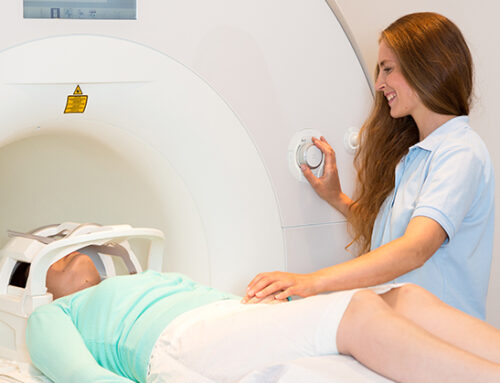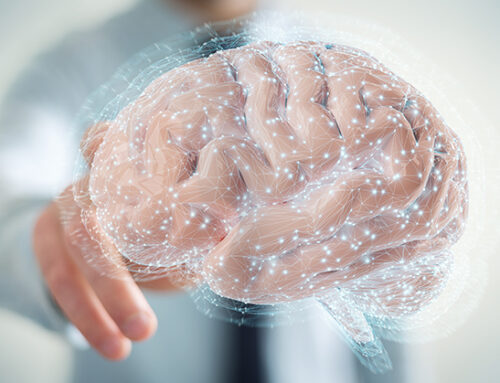By the time people are diagnosed with Alzheimer’s disease, they may have had the disease for up to twenty years. During that time, the disease can damage cells and tissues in the brain that are hard, if not impossible, to restore to health.
So, there’s an urgent need for an early diagnostic tool to ensure prevention and treatment strategies can be administered before severe memory loss takes hold.
A fast, new, non-invasive test offers real hope. This test takes only two minutes and can result in a diagnosis of Alzheimer’s disease five years earlier than current diagnostic tests.
This new test is exciting for a number of reasons.
First of all, the current tests for cognitive decline require verbal or written responses from participants and involve subjective judgments which are prone to bias.
Even the best of the current diagnostic tools for Alzheimer’s disease – brain scans and spinal fluid tests – are complex, expensive and not sensitive enough to detect the earliest stages of Alzheimer’s disease.
While good progress in early diagnosis is being made with blood tests as we’ve reported here many times, scientists from Bath University in England have been working on diagnosing the disease from a different angle.
They’re looking at brainwaves.
Brainwave Test Reveals Alzheimer’s Disease
The researchers recruited 20 Alzheimer’s patients, 20 healthy older adults and 20 healthy younger adults, then gave them a test to assess recognition memory.
During testing the team fitted each participant with an electroencephalograph (EEG) cap to record brain activity. The participants watched a series of images of everyday objects flashed on a computer screen at a rate of three per second for two minutes.
Eight of the images had previously been seen and named aloud by the participants. These were interspersed at regular intervals among the stream of other images.
If these participants recognized any of the eight images, this would elicit a distinct neural response seen on the EEG readout which would indicate strength of memory. None of the participants needed to know why they were shown the images or were asked to do anything other than watch the screen. The test was completely passive and objective.
Brainwave Test Distinguishes Alzheimer’s with 92 Percent Accuracy
During the test researchers demonstrated that recognition memory response in Alzheimer’s patients was significantly reduced compared to the healthy controls. What’s more, the Alzheimer’s patients could be diagnosed with an accuracy of 86 percent. This increased to 92 percent when researchers used a subset of electrodes in the visual processing areas of the brain.
Researchers concluded that using the test could allow them to diagnose Alzheimer’s disease five years earlier than current testing methods.
The findings of the research into this brainwave-testing technique, called Fastball or Fast Periodic Visual Stimulation, were published in the journal Brain in September.
A Future Screening Tool
Dr. George Stothart, a cognitive neuroscientist who was leading the research, has high hopes for the future of the test, saying, “Fastball offers a genuinely novel way of measuring how our brain is functioning. The person being assessed doesn’t need to understand the test, or even respond, they simply watch a screen of flashing images and by the way we manipulate the images that appear we can learn an enormous amount about what their brain is, or is not, able to do.
“We are at a really exciting stage in its development. We are testing the tool in earlier and earlier stages of Alzheimer’s and expanding the type of brain function it can measure to include language and visual processing. This will help us to not only understand Alzheimer’s but also the many other less common forms of dementia.
“Ultimately the Holy Grail of a tool like this would be a dementia screening tool used in middle age for everyone, regardless of symptoms, in the same way we test for high blood pressure. We are a long way from that, but this is a step towards that goal.”
Dr. Stothart and his team of researchers are hopeful that in the future Fastball will lower the age of diagnosis of Alzheimer’s disease and allow for more effective treatment.
- https://www.bath.ac.uk/announcements/pioneering-eeg-test-could-dramatically-increase-early-
diagnosis-of-alzheimers/ - https://theconversation.com/alzheimers-disease-measuring-brain-waves-could-diagnose-
dementia-early-new-study-167741 - https://academic.oup.com/brain/advance-article/doi/10.1093/brain/awab154/6372384







